Any organisation, no matter the industry, size or nature, is vulnerable to lawsuits, workplace grievances, employment claims and many other legal challenges that have the potential to impact on the operations of the organisation and its reputation.
Thankfully, well-constructed and implemented HR policies help to mitigate these types of risks as well as help to ensure the smooth operations of HR elements and the broader governance of the organisation.
Considering the significance of organisational HR policies, we have gathered some key guidelines and information that will help make the process ofHR Policy Development easier.
Why do you need to establish policies?
- Communicate organisational values and expectations rules amongst the employees.
- Create a fair, equal and transparent working atmosphere for all employees.
- Keep the organisation in compliance with administrative laws and regulations.
- Establish a basis for monitoring and reviewing changes within the company and in employment behaviour.
- Reduce the cases of employee misconduct and workplace mismanagement.
- Make consistent and uniform HR decisions.
Important areas you need to frame HR policies around:
- Code of Conduct
- Employee compensation and benefits
- Employee and industrial relations legislation and frameworks (e.g. EA's)
- Employment practices, training and placement
- Workplace diversity
- Training and development
- Workplace Health and Safety
Essential considerations when developing and revising HR policies
- Define the real scope of the HR policy.
- Carefully consider the corporate culture and formulate policies to help develop and encourage the required cultural outcomes.
- Identify, understand and address external obligations (like legislation, regulations etc.) that your HR policies are required to cover.
- Holistically assess the proposed areas of change or development to ensure integration and consistency with existing policy documentation and intent.
- Before finalising, test drafts with line managers and supervisors to check the legitimacy of policy content and identify areas that might require adjustment or review.
- Seek the opinions of employees (potentially via staff consultative forums) to ensure that all policies are fundamentally fair, understandable and are therefore likely to be implemented consistently and achieve the requisite outcomes.

